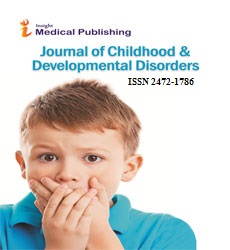Abstract
Towards Understanding Human-Media Interaction: The Effect of the ComputerÃÆâÃâââ¬Ãâââ¢s Answer-UntilCorrect (AUC) vs. Knowledge-of-Result (KR) Task Feedback on Young UsersÃÆâÃâââ¬Ãââ⢠Behavioral Interaction Development through a DigitalPlaygroundÃÆââ¬Å¡Ãâî
The present study was mainly conducted to explore the effect of the computer’s Answer-Until-Correct (AUC) vs. computer’s Knowledge-of-Result (KR) task feedback on children's speech use (compulsory-interaction), manifested innerinteraction, task performance and satisfaction during learning tasks with forty preschool children. The effect was explored through a special computer-based methodology that completely relied on special Digital-Playground®. The Digital- Playground® was essentially used to control the entire experiment without any sign of Human-Human-Interaction (HHI) either before, during, or after the progression. Technically, no instructor, teacher, parents, experimenter, caregiver, or any other human's external regulator was engaged as no previous training was offering to the young users on how to use the environment or what should they do either before, during, or after the experiment. It was hypothesized that the effect of computer's AUC on the young users' interaction behavioral development will outperform computer's KR in the verbalization intensity (compulsory-interaction), manifested self-regulation (inner-interaction), and the degree of satisfaction. Despite the results were not confirmed the hypothesis, the results generated by the game were consistent with the statistical results in which this consistency increases, to a great extent, the reliability of the interaction measurements used in the present study. However, the results were not confirmed Vygotsky’s view or Piaget’s view of self-regulation (inner-interaction) development as the results concluded that thinking aloud (spontaneous-interaction) and self-regulation (inner-interaction) have a reverse relationship. Therefore, thinking aloud (spontaneous-interaction), per se, can be used to explore various and different problems that the young users may not agree to talk about. Importantly, the main message that we aimed to send to each single researcher including us, is to stop using different English terminologies to describe the same phenomenon because this will not lead to a real revolution to help our children.
Author(s):
Adel M Agina, Piet A Kommers and Dirk Heylen
Abstract | Full-Text | PDF
Share this

Google scholar citation report
Citations : 504
Journal of Childhood & Developmental Disorders received 504 citations as per google scholar report
Abstracted/Indexed in
- Google Scholar
- China National Knowledge Infrastructure (CNKI)
- Directory of Research Journal Indexing (DRJI)
- WorldCat
- Publons
- Geneva Foundation for Medical Education and Research
- Secret Search Engine Labs
- Euro Pub
Open Access Journals
- Aquaculture & Veterinary Science
- Chemistry & Chemical Sciences
- Clinical Sciences
- Engineering
- General Science
- Genetics & Molecular Biology
- Health Care & Nursing
- Immunology & Microbiology
- Materials Science
- Mathematics & Physics
- Medical Sciences
- Neurology & Psychiatry
- Oncology & Cancer Science
- Pharmaceutical Sciences

